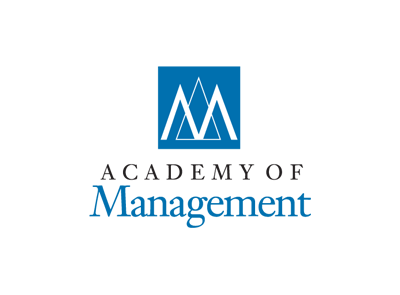Developing Theories of Management and Organization Grounded in African Experience
05 Jan 2022
Cairo , Egypt
German University in Cairo (GUC)
AMR Editor-in-Chief Sherry M. B. Thatcher (University of South Carolina, United States)
sherry.thatcher@moore.sc.edu
This paper draft development workshop (PDDW) is aimed at exploring the opportunities and processes for developing theories of management and organization that are indigenous to Africa.
Purpose
Despite its long history and rich context, Africa has not yet been adequately figured in theories of management and organization (Dana, Ratten, & Honyenuga, 2018; George, Corbishley, Khayesi, Haas, & Tihanyi, 2016; Inyang, 2008; Nkomo, Zoogah, & Acquaah, 2015; Zoogah, 2008). There are sporadic references to how some limited observation of, or experience in, Africa inspired this or that management scholar in their theoretical thoughts; as is narrated about Elton Mayo and how the position that he briefly held at a gold mining company in Obuasi in West Africa informed some of his later writings (Trahair, 2017). But when it comes to serious engagement with African cultures and experiences, the existing management and organization studies have to date been dominated by prescriptive writings that argue for how things “ought to be viewed” rather than how things “are viewed” (Nkomo, 2011). Theories, however, are most often built upon a corpus of descriptive inquiries that accurately document the views, practices, and relationships that are relevant to the phenomenon under study. Developing theories of management and organization that are grounded in African experience must be rooted in how people in different regions of Africa understand collective goals and structures, and how they have been going about cooperating and coordinating their activities in social, cultural, and economic realms for millennia.
One stream of research that has been particularly keen on foregrounding context is the emerging literature on “indigenous” theories of management and organization (Jack et al., 2013; March, 2004; Tsui, 2004; also see the 2012 special issue of Management and Organization Review on “Indigenous management research in China”). Disenchanted by the generalized, context-free knowledge claims that characterize the mainstream of management and organization research, some scholars have highlighted that such knowledge claims are often rooted in and reproducing the values, worldviews, and histories of North America and Europe (Jack & Westwood, 2009; Prasad, 2003; Tsui, 2007). The Western theories of management and organization, nonetheless, have been adopted and perpetuated all over the world, in contexts that are completely alien to the cultural heritage of the West. The globalization and sacralization of these knowledge claims as “the truth” has contributed to the neocolonial cultural genocide of indigenous people, effectively silencing and masking a wealth of alternative forms of knowledge and experience (Ahmad, 1992; Jaya, 2001). Africa has been the most visible victim of this cultural hegemony as Africans have been denied of their voice, agency, and anchoring narratives for more than five centuries (Asante, 2014).
This paper draft development workshop (PDDW) is aimed at exploring the opportunities and processes for developing theories of management and organization that are indigenous to Africa. The aim is to develop indigenous theories not necessarily with a capital “I” (i.e. to be purely African, devoid of all external influences, as if it is at all possible), but indigenous with a small “i” (i.e. to be primarily drawing on and accounting for African experiences). Thus, it is not a forum for discussing Africa as yet another context for testing and elaborating on the existing Western theories (e.g. George et al., 2016); rather, it is a forum for discussing how the diverse, rich lifeworlds of African people can inform our understanding of management and organization, and enable us to develop new theories (e.g. Barnard, 2020; Hamann, et al., 2020; Shadnam, in press; Zoogah, Peng, & Woldu, 2015). Some notable attempts in this direction include development of concepts such as ubuntu (Karsten & Illa, 2005; Lutz, 2009; Mangaliso, 2001; Seremani & Clegg, 2016), indaba (Horwitz, Kamoche, & Chew, 2002; Newenham-Kahindi, 2009), omoluwabi (Àjàdí, 2012; Ogbechie & Anakwue, 2018), and shemsw (Zoogah, 2020). But given the norms and tastes that are dominant in the contemporary academia with respect to theory and theorizing (DiMaggio, 1995; Sutton & Staw, 1995; Weick, 1995), developing theories of management and organization must not only rely on concepts, but also sets of interrelated propositions, predictions, arguments, and explanations that uncover the connections between various phenomena and shed light on the underlying mechanisms (for several meanings of theory, see Sandberg & Alvesson, in press). This is a challenging endeavor as it requires knowledge of both established tools of theory development as well as African ways of constructing knowledge. Without this dual capacity, there is the danger that writers of African accounts of organizational life and those writing from Western traditions will talk past each other (Hamminga, 2005; Nkomo, 2017). For researchers who aspire to develop their dual capacity toward developing theories of management and organization grounded in African experience, this PDDW will provide disciplined guidance and constructive feedback from seasoned scholars who are serving on the editorial team of AMR. The goal is to help prospective contributors to develop their ideas and create an outline that serve as a foundation for submission to AMR or other theory journals.

